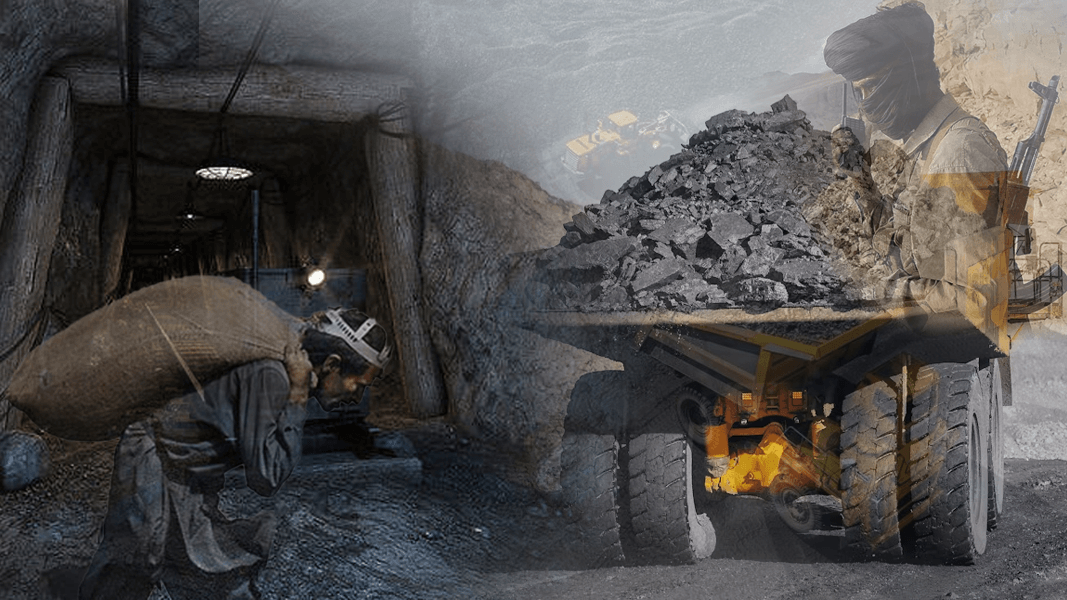
Imtiaz Baloch

March 04, 2026
By | Imtiaz Baloch

Despite its environmental impact, Pakistan is looking to increase its dependency on fossil fuels for energy production. To that end, Pakistan and China signed a US$62 billion bilateral infrastructure, energy, and connectivity project back in 2013 under the China-Pakistan Economic Corridor (CPEC).
The energy sector of the CPEC heavily relies on coal as a primary source, with a dependence on both imported coal and local production to meet its energy needs. Under the CPEC, seven coal energy projects have been completed, while one is under construction. Out of the total of eight projects, two are based in Balochistan, including the 1,320-megawatt China-Hub coal project together with a 300-megawatt coal-fired power project based in Gwadar.
The previous government's petroleum ministry held a minerals summit titled, “Dust to Development: Investment Opportunities in Pakistan’ in June this year. This summit was organized in Islamabad by Pakistan's newly set up Special Investment Facilitation Council (SIFC) and Canada-based Barrick Gold Corporation. The main goal of the summit was to attract foreign investment, particularly in the country's $6 trillion worth of mineral resources.
In the rugged landscapes of Balochistan, key coal-rich sites, including Kalat, Much, Gunza, Dagari, Narwadh, Sor Range, Shahrigh, Harnai, and Duki, emerged as the main hubs for the nation's energy production. According to the data from the Pakistan Minerals Development Corporation, the coal output from three mines – Shahrigh, Sor range, and Degari – has collectively surged to 348,439 tons. This production demonstrates the crucial role played by Balochistan in fueling Pakistan's energy needs, shaping the narrative of the province as a key player in the country's mineral wealth.
Despite the strategic significance of projects like the CPEC in Balochistan, insurgents have carried out high-profile attacks targeting Chinese citizens, skilled professionals, and teachers. These attacks, exemplified by operations like 'Zarpazag' conducted by the outlawed Baloch Liberation Army's Majeed Brigade, aim to disrupt Chinese and other foreign investments in Gwadar and create challenges for the overall success of the CPEC and related projects in the Balochistan province. The Baloch insurgents frequently target coal mines in Balochistan purportedly to abrupt the province's exploitation.
The Khorasan Diary (TKD) documented the activities of the past seven months, showing that 16 laborers, including three from the Hazara community in Quetta, were abducted while working in various areas of Balochistan. Official data released by authorities indicates that in 2023, 54 incidents were reported, resulting in the deaths of 69 coal miners in different incidents.
Meanwhile, the Director General of Mines, Inspector Ghani Khan, reported a higher toll, indicating that a total of 43 incidents occurred from January 2023 to November. The incidents, he said, resulted in 55 casualties, with an additional 17 mine workers sustaining injuries.
For instance, on July 7, the Balochistan Transport Association's president, Noor Ahmed Kakar, along with the representatives of the Pakistan Coal Association, Mines and Minerals Association, said in a joint statement that they pay Rs230 per tonne to the security forces to ensure the security of the trucks carrying coal.
Similarly, the Human Rights Commission Pakistan (HRCP), noted in a research paper that union representatives and mine owners alike have been particularly bitter about the role of the paramilitary Frontier Corps, which they claim, “collects millions of rupees in the name of security but failed to maintain peace in the area”.
Lala Sultan Khan, the President of the All-Pakistan Workers Federation, and the General Secretary of Pakistan Central Mine, stressed on the importance of the coal resources in various parts of Balochistan, where over 300,000 laborers are employed.
"The coal resources in Balochistan are crucial for the livelihoods of hundreds of thousands of workers, and it is essential to ensure their safety and well-being,” he said.
Other than that, the Baloch Liberation Army (BLA-Jeeyand Faction) has also demanded locals and contractors evacuate the village of Peer Ismail in Bolan District. A letter, a copy of which is available with TKD, noted that the organization has directed people and contractors to vacate the place due to “security reasons”. The group also mentioned in the letter that organizations will take every possible step to resume the production of coal in the area.
The letter from the BLA threatened local coal contractors to evacuate the Peer Ismail area of Bolan.
In June last year, the BLA claimed to have punctured dozens of coal-carrying trucks in the Zardalu area of the Harani district. Meanwhile, the Levies officials from the area shared documents showing that unidentified persons targeted those trucks, while attackers snatched Rs0.2 million from the truck drivers and conductors.
Screenshot of The Khorasan Diary’s tweet on the incident
The lists of trucks that were attacked
Lala, addressing the matter of worker registration, pointed out that coal mine owners intentionally avoid registering workers to evade responsibility in the event of any unfortunate incidents. He went on to disclose a troubling statistic, revealing that a minimum of 300 people lose their lives annually, yet the owners deliberately withhold information to seek exemptions.
He said that the Supreme Court of Pakistan directed mine owners to increase the compensation from Rs200,000 to Rs500,000. Talking about the safety measurements, Lala said not a single authority was taking any steps to stop the loss of lives.
However, the DG mines inspector said that “compensation is paid to all deserving persons; it does not require any registration.” On the question of fleecing labor, Ghani, further said, “No such issue exists regarding the exploitation of labor.”
The Vice President of The Human Rights Commission of Pakistan’s Balochistan chapter, Habib Tahir, told TKD that “to uphold safety standards and decrease the occurrences of mining accidents, it is essential to enhance both the quantity of qualified government safety inspectors as well as the frequency of their inspections” in the province.
Tahir further said that “under the Mines Act 1923, mine owners and contractors who do not uphold suitable safety standards should face legal action for their negligent behavior.”
When asked about non-registered mine workers, Tahir said that the misery of mine workers hailing from Afghanistan and Khyber Pakhtunkhwa must be acknowledged to ensure the health and safety of workers.